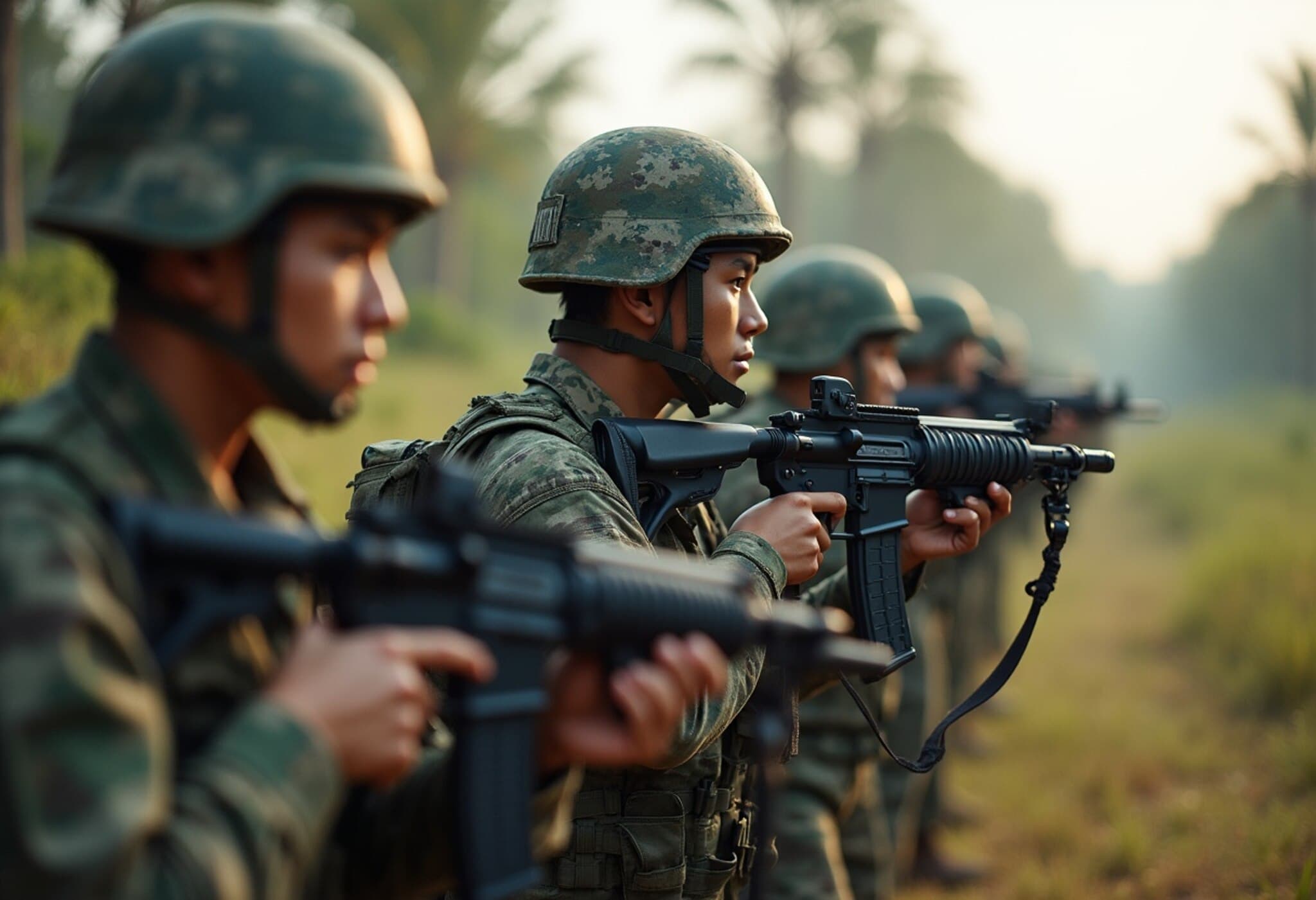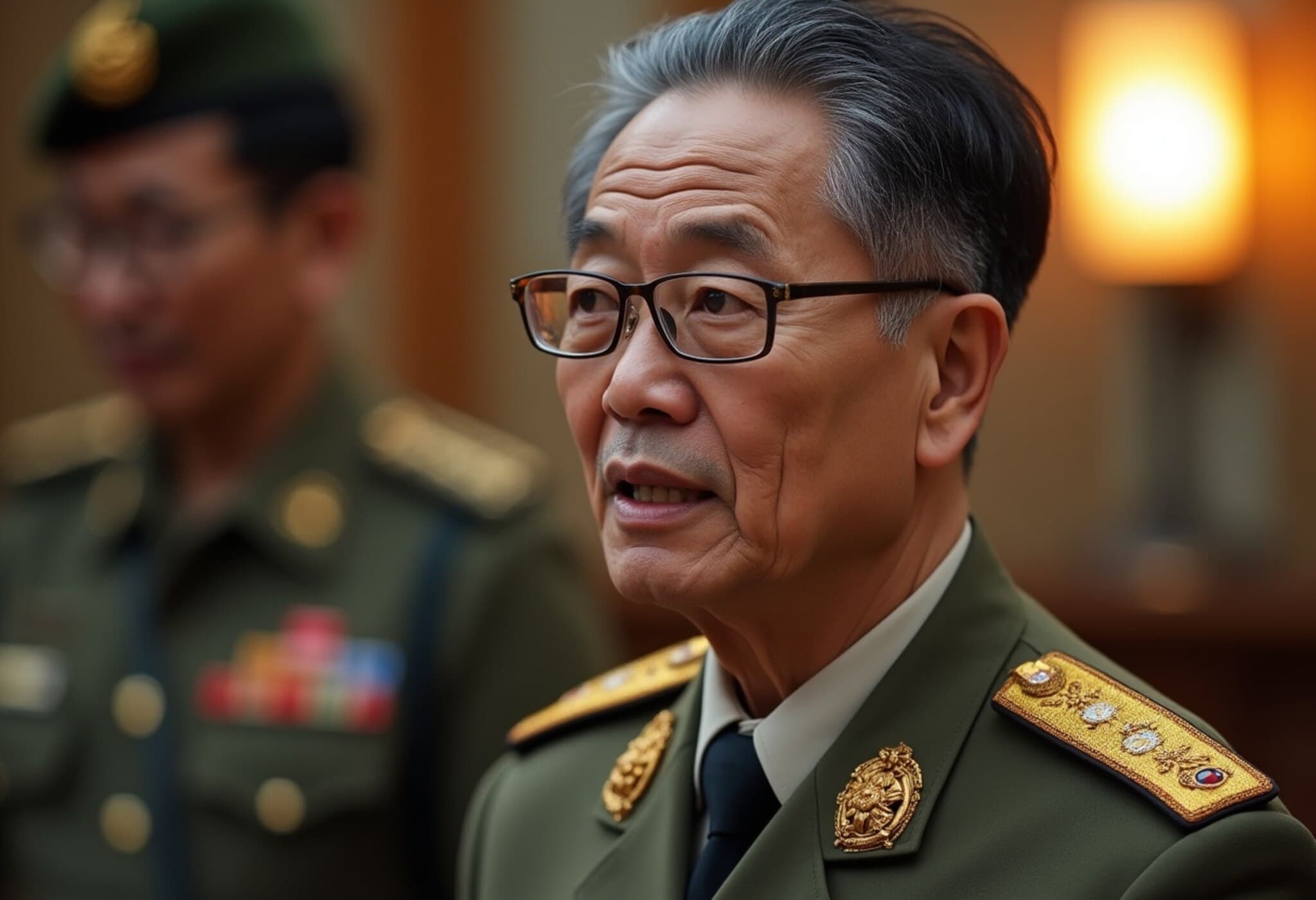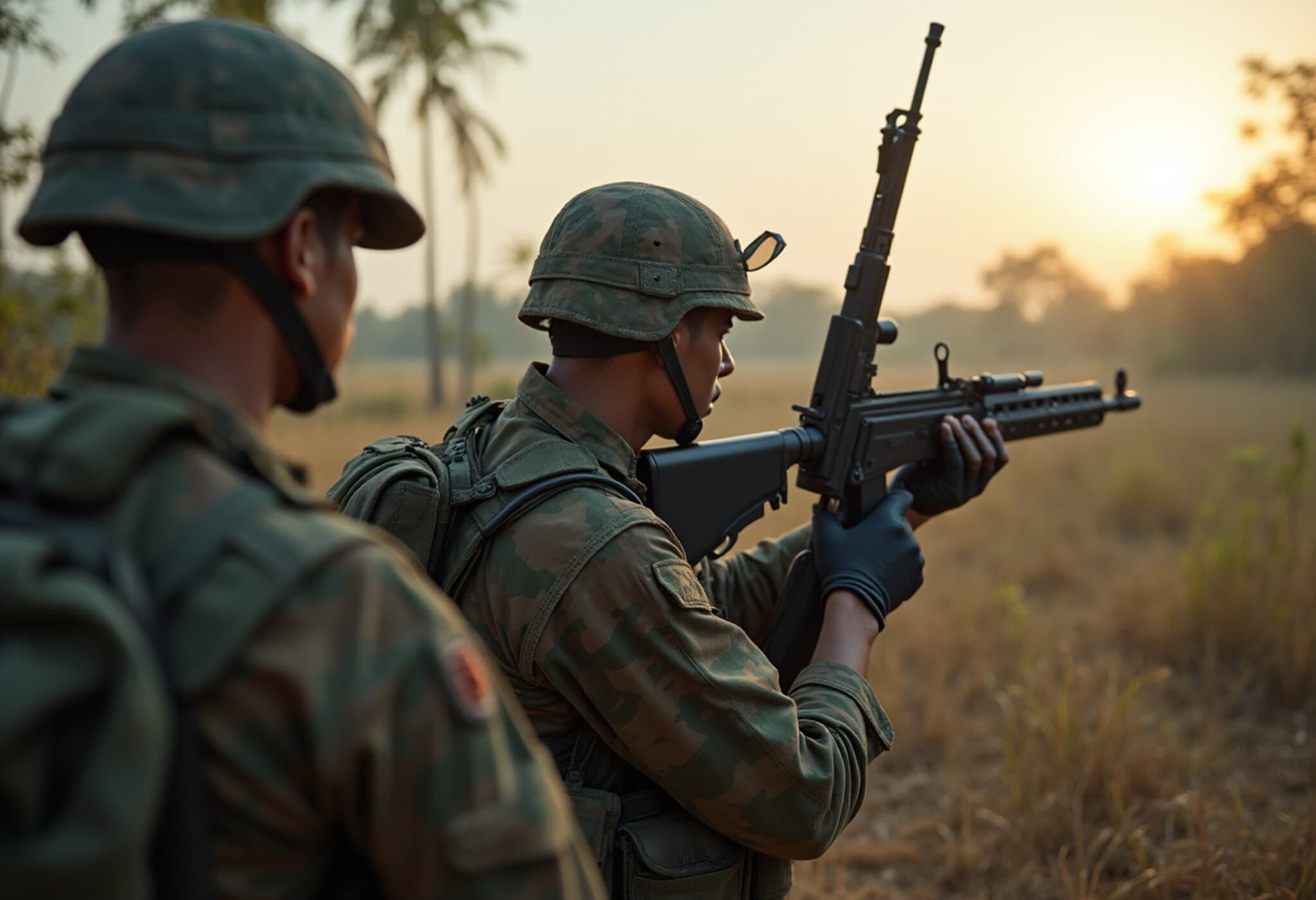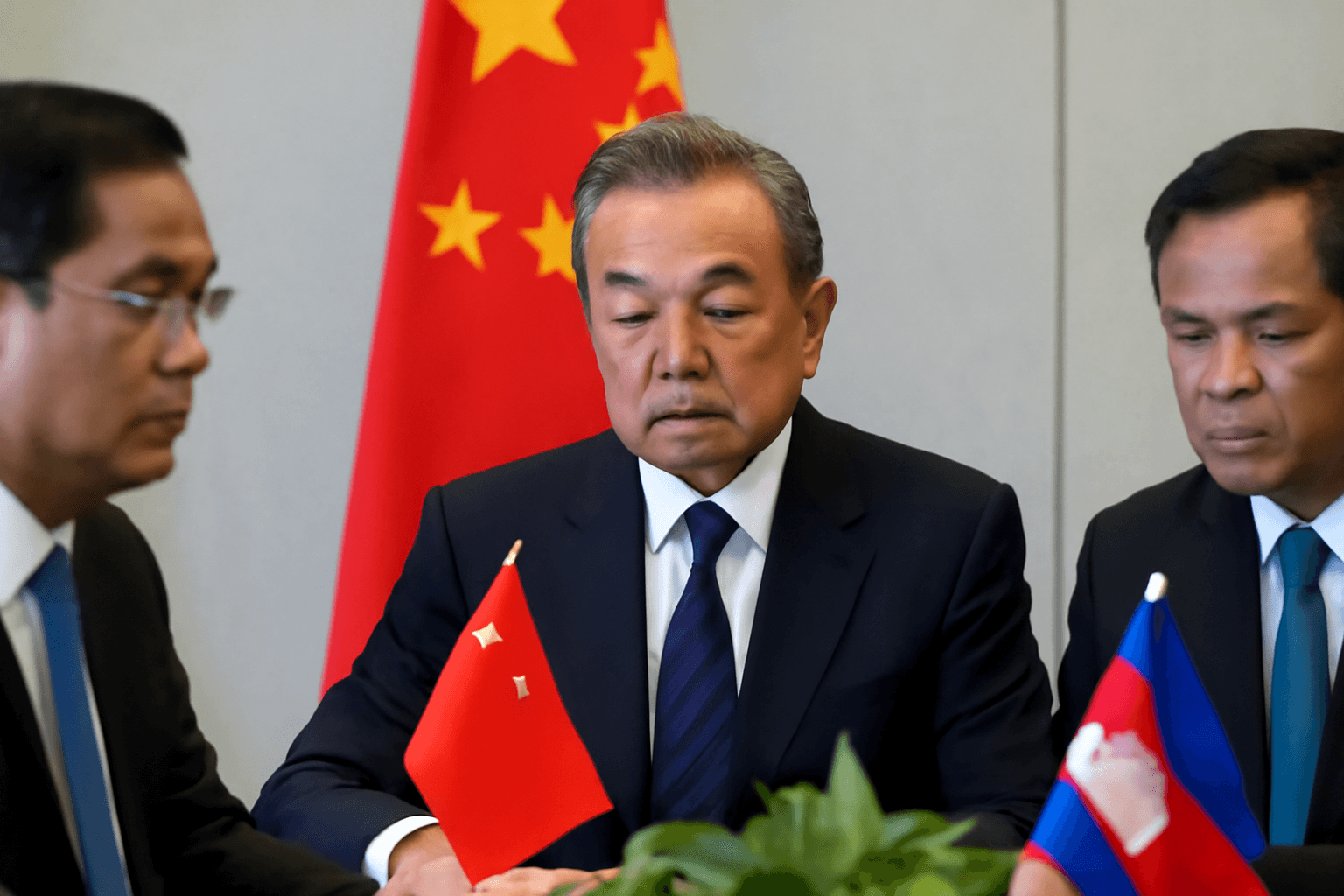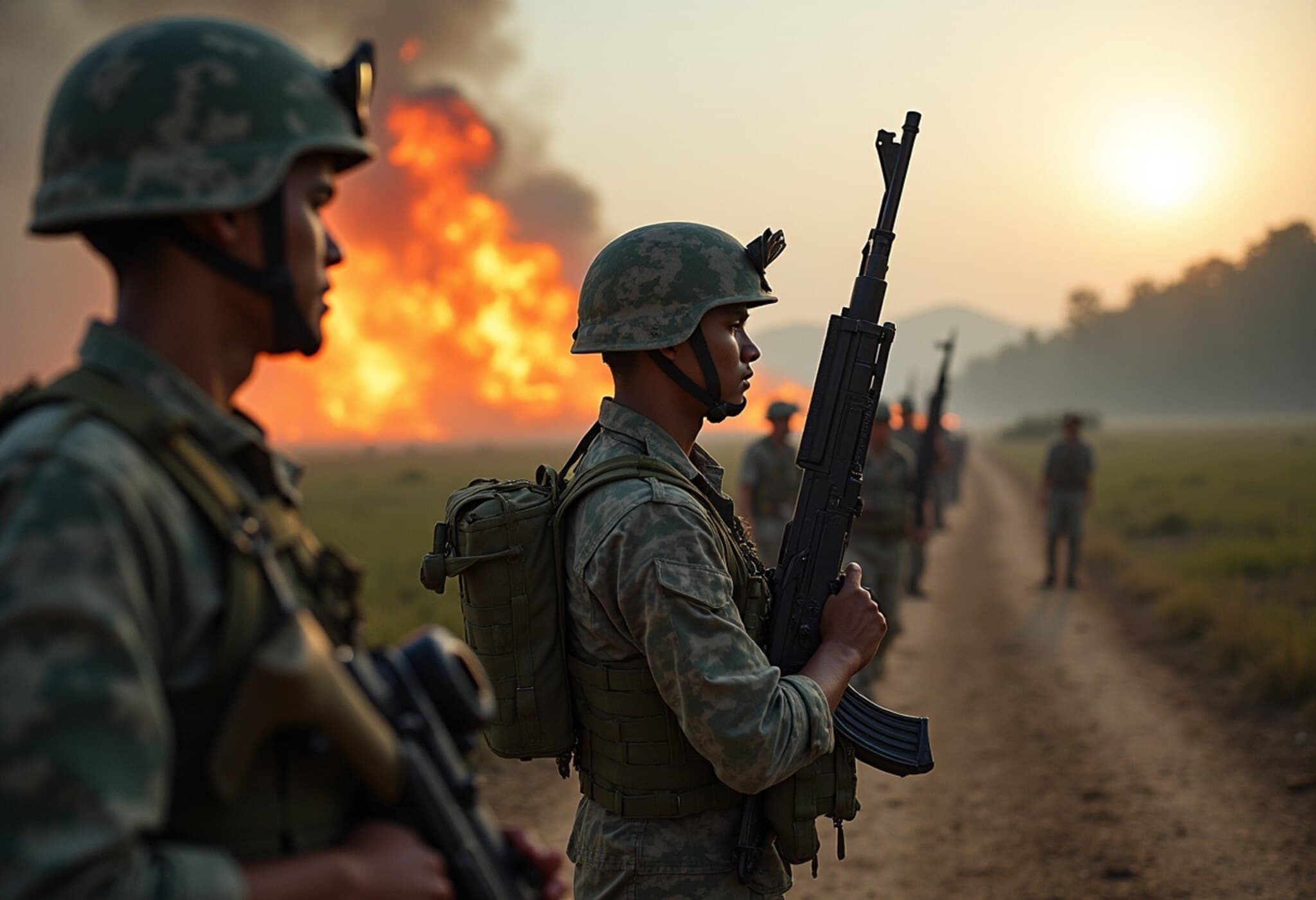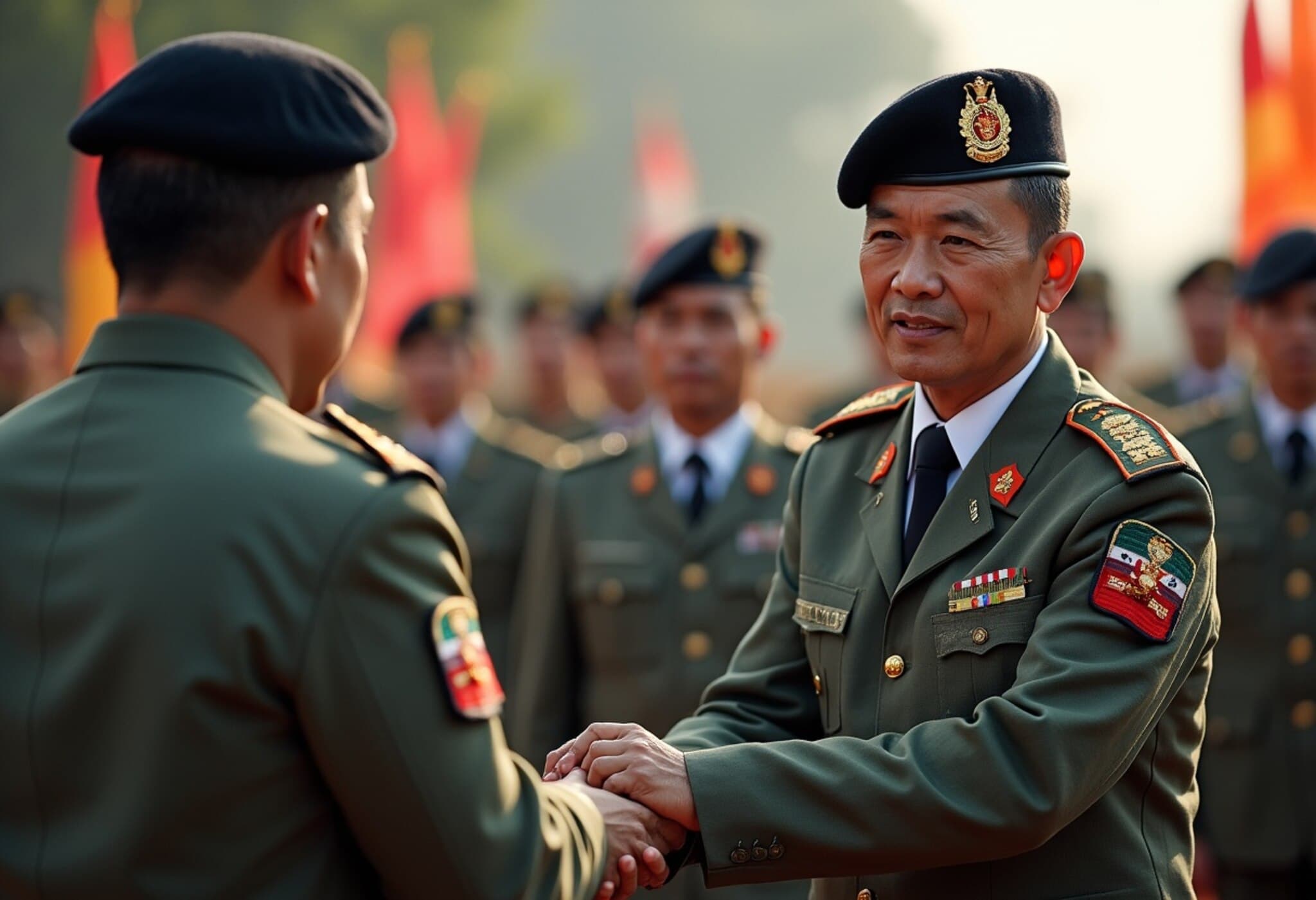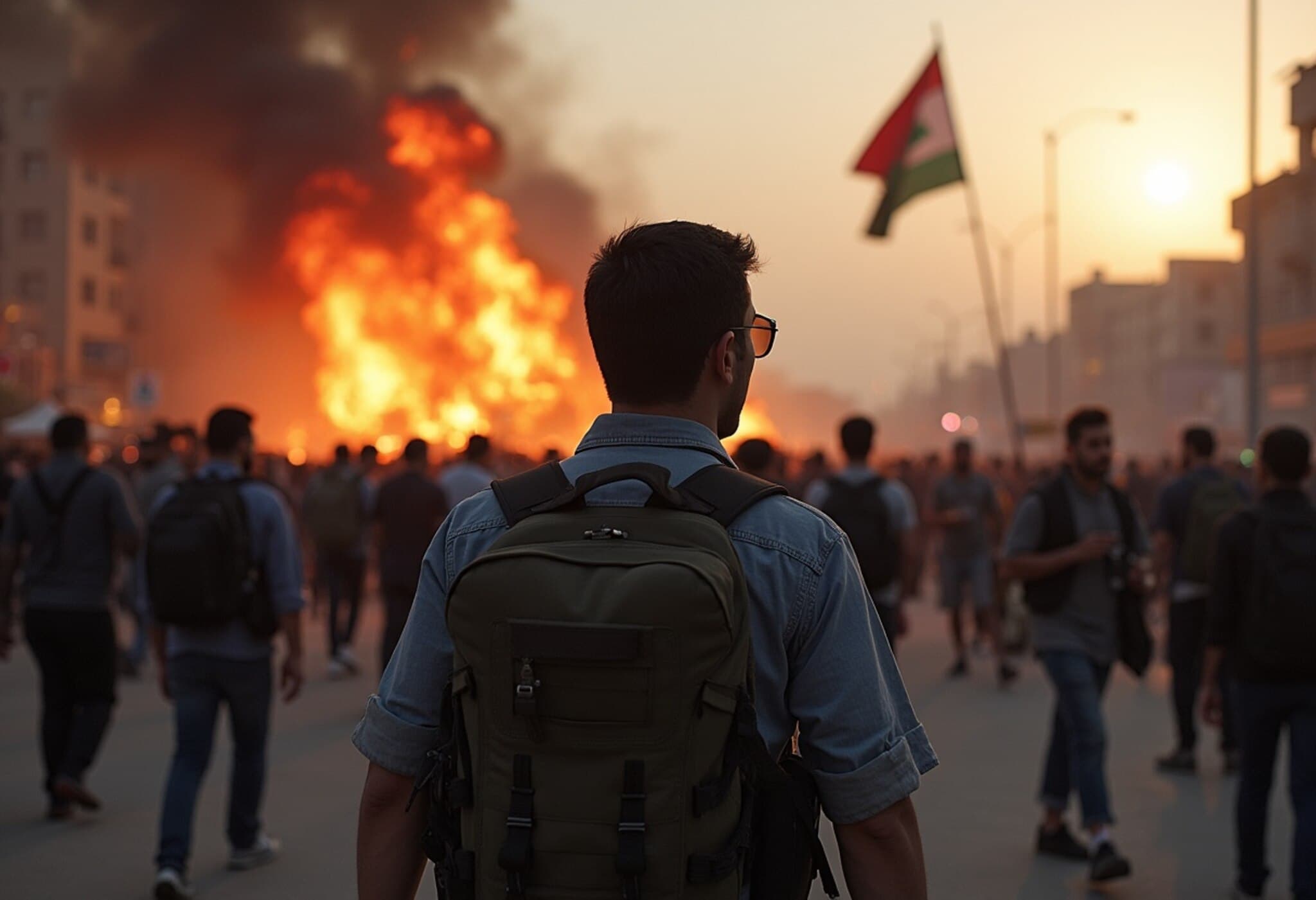Landmine Blast Injures Thai Soldiers Near Cambodia Border
In a tense reminder of ongoing border disputes, three Thai soldiers were wounded by a landmine while patrolling along the sensitive border area between Thailand’s Sisaket province and Cambodia’s Preah Vihear province on Saturday. Among those injured, one soldier tragically lost a foot. The incident occurred only days after both countries agreed on a detailed ceasefire to halt the deadly conflict that flared just last month.
Backdrop: A History of Tension and Conflict
The Thailand-Cambodia border dispute dates back decades, with unresolved demarcations tracing to colonial maps drawn by France in 1907 when Cambodia was under French rule. The most recent clashes, from July 24 to 28, represented the fiercest engagements in over ten years, involving artillery duels and aerial sorties that claimed at least 43 lives and displaced more than 300,000 civilians on both sides.
Ceasefire Efforts and ASEAN’s Role
Following the July hostilities, the two neighbors agreed on a fragile ceasefire on August 6. ASEAN has been tasked with monitoring the disputed border to prevent renewed fighting, a diplomatic step seen as key to de-escalation amid rising regional tensions.
Disputed Blame Over Landmine Incident
Thai authorities assert that the landmine causing the recent injuries was planted recently by Cambodian forces on Thai soil, a claim Cambodia firmly denies. Cambodia emphasizes its status as a “proud state party” to the 1997 Ottawa Convention banning anti-personnel mines and highlights ongoing efforts to clear mines leftover from decades-long conflicts. Cambodian officials warn that unfounded accusations undermine the spirit of the ceasefire and complicate diplomatic efforts.
The Thai Foreign Ministry plans to file a formal complaint, highlighting concerns over treaty violations and threats to Thailand’s sovereignty. Meanwhile, Cambodian experts from the Mine Action and Victim Assistance Authority stress that the landmine is likely remnants from past wars, cautioning that soldiers may have unknowingly wandered off agreed patrol routes.
Repeated Incidents Raise Diplomatic Alarm
Saturday's incident marks the third such occurrence in recent weeks where Thai soldiers have been injured by landmines along the border. Previous incidents on July 16 and July 23 had already sparked diplomatic tensions and contributed to the outbreak of the July clashes.
Expert Insights: Navigating a Fragile Peace
Borderland disputes like this are emblematic of wider challenges facing Southeast Asia, where historical grievances, colonial legacy, and national pride intersect with modern security concerns.
Regional security analyst Dr. Ananda Chaiyaporn notes, "Mistrust runs deep and incidents involving landmines highlight the lingering dangers of past conflicts. Until both sides engage more thoroughly in joint demining and open dialogue, the border region remains a powder keg. ASEAN’s involvement is crucial, yet the real work lies in sustained bilateral cooperation."
Moreover, the humanitarian cost remains grave. Hundreds of thousands displaced in summer’s fighting still seek safety and stability. Landmines continue to pose a deadly hazard to military personnel and civilians alike, complicating prospects for lasting peace.
What Lies Ahead?
- Diplomatic efforts must intensify to ensure treaty compliance and transparent investigation of incidents.
- Joint landmine clearance initiatives could reduce future casualties and build trust.
- Increased ASEAN mediation may provide neutral oversight to enforce the ceasefire and manage border security.
- Humanitarian support remains critical for displaced communities affected by the conflict.
Editor’s Note
The recent landmine incident near the Thailand-Cambodia border underscores the fragile nature of peace between two neighbors with a deeply contested frontier. While accusations fly, the human cost—soldiers maimed and displaced civilians—remains painfully real. For policymakers, this moment is a call to deepen diplomatic engagement, promote transparency, and intensify landmine clearance efforts. Observers should watch whether ASEAN’s involvement can translate ceasefire agreements into enduring calm or if historical grievances will continue to reignite conflict.

